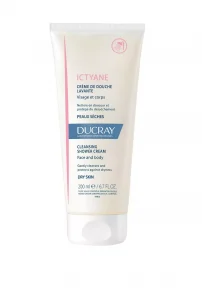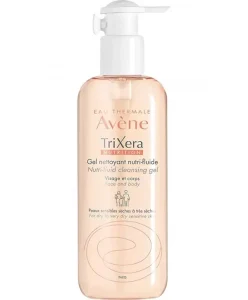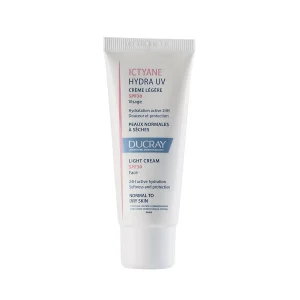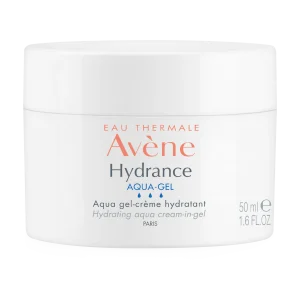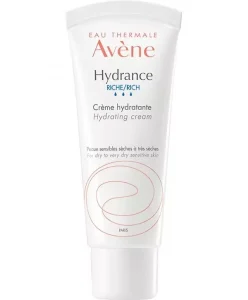
Nothing is worse than having dry, rough, flaky, itchy, or cracked skin on your face. Dry skin can be unaesthetic, making your face look older than it really is and making makeup difficult to apply. It can also cause itching and make your complexion susceptible to other issues, such as sensitivity and redness. Read this article from The Dermo Lab to discover our top tips on dry skin treatment to help restore moisture to your skin.
What makes your skin dry?
Dryness occurs when your skin does not contain enough water or oil. Dry skin is medically known as xerosis or xeroderma. It usually results from a loss of the fats that keep the skin moist. It can also be due to a lack of natural moisturizing factors, such as lactic acid, sugars, and urea.
Dry skin can affect anyone at any time, and it usually doesn’t only affect the face. You can have dry skin year-round or only during the cold weather months when temperatures and humidity drop.
You may also notice dry skin when you:
- live in a dry climate or use dry indoor heating
- travel to a low humidity area
- come into contact with chlorine in a swimming pool
- are exposed to too much sun
- are exposed to wind or cold
- use strong alkaline soaps
- take frequent long, hot showers
- come into contact with an irritant or allergen
- experience dehydration
Medical reasons for dry skin can include:
- thyroid or endocrine disorders
- vitamin or mineral deficiencies
- certain medications.
Severely dry skin can lead to superficial cracks in the skin. This increases the risk of getting a skin infection. If you think you have an infection, you should see a doctor.
What are the most common symptoms of dry skin?
Symptoms of dry skin include:
- flaking
- redness
- warm cheeks
- an ashy appearance for people with darker skin
- rough or sandpaper-like skin
- bleeding (rarely)
Dry skin can usually be treated by adjusting your skin care routine or changing certain environmental factors.
Sometimes dry skin is a sign of an underlying medical problem that needs to be treated by your doctor.
If your dry skin does not go away despite some changes in your skin care routine, you may want to consult a dermatologist.
What vitamin deficiencies cause dry skin?
If you are not getting enough of certain vitamins or minerals, this may be the cause of your dry skin. Make sure you get plenty of these:
- Vitamin A
- Vitamin D
- Zinc
- Iron
If you think your intake is insufficient, you can take a supplement for dry skin. However, always consult a physician before adding supplements to your diet.
How to treat dry skin on the face?
There are several simple things you can try to relieve dryness. Most are basic lifestyle changes that can be used in conjunction with each other to relieve your symptoms.
1- Change your shower habits
If you can, avoid hot showers and opt for lukewarm ones instead. Hot water can dry out your skin by removing natural oils.
You can also reduce the time spent in the shower to 5 or 10 minutes. This reduces unnecessary exposure to water, which can make your skin drier than it was before you jumped in the shower.
Avoid showering or bathing more than once a day, as this can make dry skin worse.
2- Wash your face gently
When choosing a facial cleanser, avoid soaps and cleansers that contain harsh ingredients, such as:
- alcohol
- retinoids
- alpha-hydroxy acids
- sulfates
- fragrance
These ingredients can dry out your skin and cause irritation or inflammation.
You should look for one or more of the following moisture-retaining ingredients:
- polyethylene glycol
- silicone surfactants
- lanolin
- kerosene
You may also consider a cleanser that contains ceramides. Ceramides are fatty molecules that form the outer barrier of your skin. They help the skin retain moisture. Some skin care products use synthetic ceramides to replace the ones we lose as we age.
Use your fingertips to gently scrub your face instead of using a more abrasive sponge or washcloth.
The following cleansers are suitable for dry to very dry skin. They maintain the skin’s balance and cleanse it without damaging it.
Ducray Ictyane Cleansing Shower Cream
Eau Thermale Avène TriXéra Nutrition Nutri-Fluid Cleansing Gel
3- Avoid washing your face several times a day
If you have dry skin, it’s best to wash your face only twice a day, unless you’re exercising.
This cleanses your skin after a long day of picking up dirt and prevents stripping the skin of necessary oils.
Don’t exfoliate your skin every day. Instead, try to do it only once a week. This can reduce the irritation associated with rough exfoliation.
4- Apply a moisturizer
Find a moisturizer that suits your skin and use it regularly, especially after showering.
Your facial moisturizer should be free of fragrance and alcohol as these ingredients can cause unnecessary irritation. To restore moisture, choose a rich, oil-based moisturizer with ingredients that help keep your skin hydrated. Petrolatum-based products are best for dry or cracked skin. They hold up better than creams and are more effective at keeping water from evaporating from your skin.
Also, look for products that contain humectants, such as glycerin and hyaluronic acid, which can bind or retain water effectively, and ingredients that help repair the skin barrier, such as niacinamide and ceramides.
Apply moisturizer morning and night. Moisturizing twice a day will keep your skin healthy in the long run and prevent dehydration. Work your moisturizer into the skin in circular motions. This technique allows the moisturizing ingredients to penetrate deeper into rough areas and dry lines for an immediate plumping effect.
Below is a list of moisturizers that intensely hydrate the skin and make it soft and supple.
Ducray Ictyane Hydra UV Light Face Cream SPF 30
To be applied only in the morning.
Eau Thermale Avène Hydrance Aqua-Gel
To be applied in the morning and evening.
Eau Thermale Avène Hydrance Rich Hydrating Cream
To be applied in the morning and evening.
5- Try a humidifier
Low humidity can be a factor in drying out your skin. Use a humidifier in rooms where you spend a lot of time. Adding moisture to the air can prevent your skin from drying out. Make sure your humidifier is easy to clean, to avoid bacteria build-up.
6- Avoid hot and spicy foods and drinks
It is best to avoid certain foods, such as citrus fruits, very hot and spicy foods, and large amounts of hot drinks, and alcohol.
How to prevent dry skin?
To prevent future dryness, implement a healthy skin care routine.
- Wash your face daily with a mild cleanser and warm water.
- Choose skin care products that are appropriate for your skin type.
- Apply a moisturizer to your skin after a shower to lock in moisture.
- If you experience dry skin at a particular time of year, such as during the cold months, make sure to adjust your skin care routine.
It may be necessary to change your product or shower routine at certain times of the year to prevent dryness.
Key aspects of dry skin
Dry skin is very common. It can cause irritation and itching. By changing your shower routine or adjusting your skin care regimen, you should be able to relieve dry skin symptoms in about a week.
To see a permanent change, be consistent with your lifestyle changes. Stick to a regular routine to ensure long-lasting results.
If your symptoms persist or worsen, see your doctor. In some cases, dryness may be a sign of an underlying skin condition.
Last Updated on February 12, 2024

